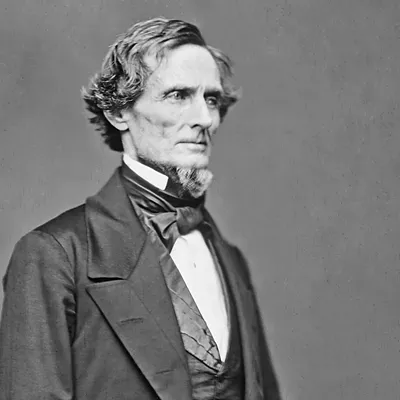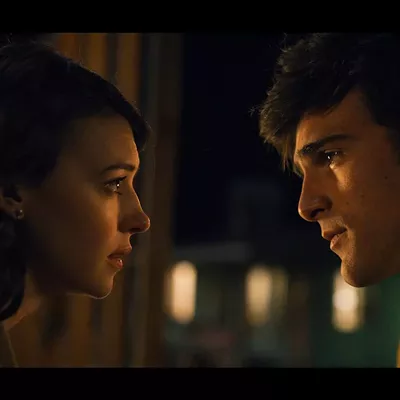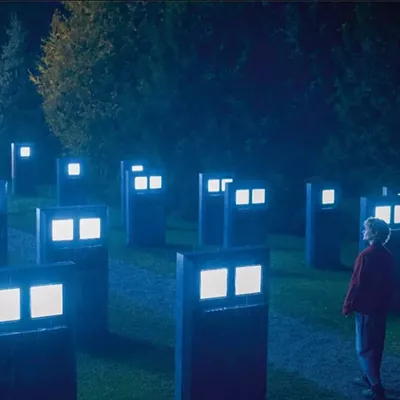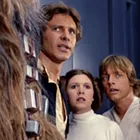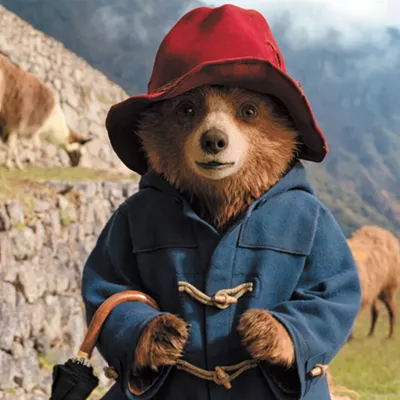If we could possibly pinpoint a single solitary reason why the United States has gone to shit in recent decades, it might be the "philosophy" that's gripped what has been passing for journalism for far too long: the notion of false balance — that there are two sides to every story and that both of these sides are equally valid, even when that is not remotely plausible.
This is the milieu in which writer-director Alex Garland's (Ex Machina, Annihilation) spineless dystopian action drama Civil War is perfectly happy to sit. Here, the United States is mired in an internecine conflict of unspecified origin. We are given brief glimpses of a speech by the American president (Nick Offerman) as he rails against the insurrectionist "Western Forces" of "Texas and California," two states that almost anyone paying attention to the actual current tinderbox situation in the real U.S. would reasonably presume would be on opposite sides of any profound societal rift. But we hear nothing from the Western Forces in the film. The lack of context for anything and everything occurring here feels like utter cowardice on Garland's part, a default to the ruinous both-sides-ism that pretends that every perspective must be equally worthy. Why is America at war with itself? Probably good reasons on all sides? Bullshit.
But it gets worse. Civil War is not about the conflict but about the reporters covering it: photojournalist Lee (Kirsten Dunst), her professional partner Joel (Wagner Moura) and their tagalongs — newbie Jessie (Cailee Spaeny) and veteran Sammy (Stephen McKinley Henderson). They've heard rumors of an impending assault on Washington, D.C., by the Western Forces, and so they're gonna hit the road from the battle they've just covered in New York City in the hopes of reaching D.C. in time to catch some good pics.
Garland thinks he's championing journalists here, and to a tiny degree, he is: The cast is beyond terrific, but they deserve a far more courageous and insightful movie than this one. Spaeny is physically unrecognizable from her turn as a very young Mrs. Elvis Presley in last year's Priscilla, but Jessie is psychologically similar in how she balances a spunky youngster's enthusiasm against the awful realities she will encounter that will shock her out of her naivete. Dunst carries the heavy weight of a war photographer's experience with a weary sort of horror. Her Lee explicitly states that, basically, she never imagined that the nightmares she had captured overseas would be repeated at home.
But these journalistic characters exist in a larger context — one that they understand, but one that we lack. They know — because of course they do, they live in this world — what the multiple sides of this conflict stand for. (The U.S. seems to be split onto more factions than just two, but it's difficult to tell.) Denying that context to those of us digesting their stories is not only unfair to viewers, but unfair to the characters. We cannot make any sort of determination about what kind of journalism they are attempting to do. Are they aiming for an impossible "view from nowhere," that faux objectivity of modern reportage that is so damaging? Or do they intend something more meaningful for their work? Garland's own view from nowhere is an immense disservice to his characters.
There is some power in Civil War, especially visually. One image that sticks is of a crashed military helicopter in a shopping mall parking lot — a potent shattering of casual American capitalism and of the relative calm and stability that allows it.
There is a value, too, in a knock to American cultural complacency. It depicts the sort of civil unrest and outright urban warfare that we are all too used to seeing on the news happening in other faraway places (and often with the complicity of the U.S. government), but places it on American soil. It should be a wakeup call alerting us to the very dangerous situation the U.S. is in right now.
But instead of being resonant, Garland gives us something dangerously irresponsible: a movie with Hollywood gloss — "experience it in IMAX" — at an incredibly precarious moment for the United States, when small-scale insurrection has already happened and wider conflict does not seem impossible. Civil War has nothing interesting or new to say about the journalism at its center, and its pretense of "objectivity" lacks any meaningful focus.
Civil War makes me genuinely angry in a way that few movies ever have. ♦



